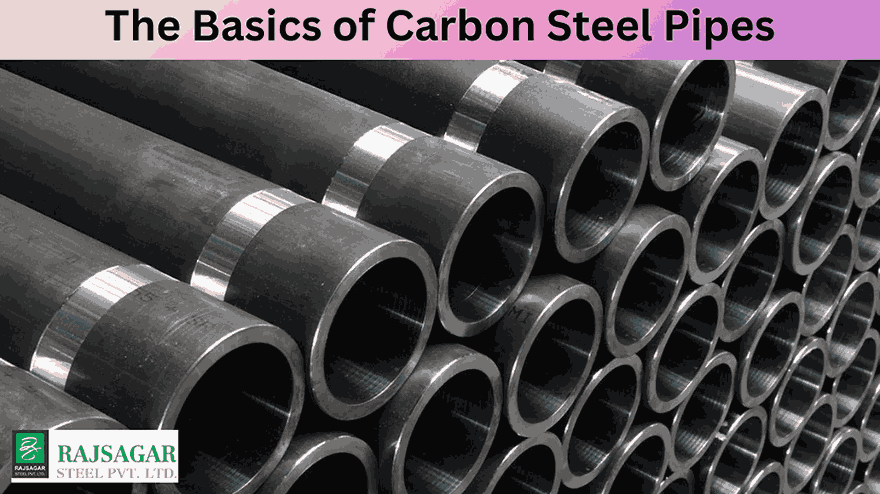Carbon Steel Pipes are becoming increasingly popular in various industries, including construction, oil and gas, and manufacturing. Carbon steel is an alloy of iron and carbon with a high tensile strength and excellent hardness. Unlike other metals, carbon steel is corrosion-resistant and can withstand high temperatures and pressure, making it ideal for use in pipes. This blog post’ll discuss carbon steel pipes’ basics, composition, properties, and general applications.
Carbon Steel Pipes Composition
Carbon steel pipes are made of varying proportions of carbon and iron, with other elements added to enhance the physical and mechanical properties. The carbon content in carbon steel pipes can range from 0.05% to 2.0%, depending on the intended use and desired properties. Other elements that may be added include manganese, silicon, sulfur, and phosphorus.
CS Pipes Properties
Carbon steel pipes have several properties that make them ideal for various applications. Firstly, they have excellent tensile strength, making them resistant to deformation or breaking under high pressure. Secondly, they have high hardness and wear resistance, ideal for harsh environments. Thirdly, carbon steel pipes are corrosion-resistant, forming a protective oxide layer when exposed to air or water. Finally, carbon steel pipes can withstand high temperatures, making them suitable for use in industries such as oil and gas.
Carbon Steel Pipes Applications
CS pipes have many applications in various industries, including construction, oil and gas, and manufacturing. Carbon steel pipes are used for pipelines, structural components, and transport systems in construction. Carbon steel pipes are used for oil and gas extraction, transportation, and storage in the oil and gas industry. Carbon steel pipes are used for machinery, equipment, and transport systems in manufacturing.
Carbon Steel Pipes Maintenance
To maintain the integrity of carbon steel pipes, it’s essential to implement a maintenance program that includes periodic inspections and cleaning. Periodic inspections help identify potential issues, such as rust or wear, before they become significant problems. Cleaning is also necessary to prevent the buildup of debris or dirt in the pipes, which can cause blockages or reduce the effectiveness of the pipes. Finally, it’s essential to follow the manufacturer’s guidelines for using and maintaining carbon steel pipes and to seek professional help if any significant issues arise.
Conclusion:
In conclusion, carbon steel pipes are an excellent choice for use in various industries thanks to their excellent mechanical, physical, and chemical properties. Understanding the basics of carbon steel pipes, including their composition, properties, applications, and maintenance, can help industries make informed decisions about their use. If you’re considering using carbon steel pipes, talk to a qualified professional to help you choose the ideal type of carbon steel and ensure proper maintenance and usage.

